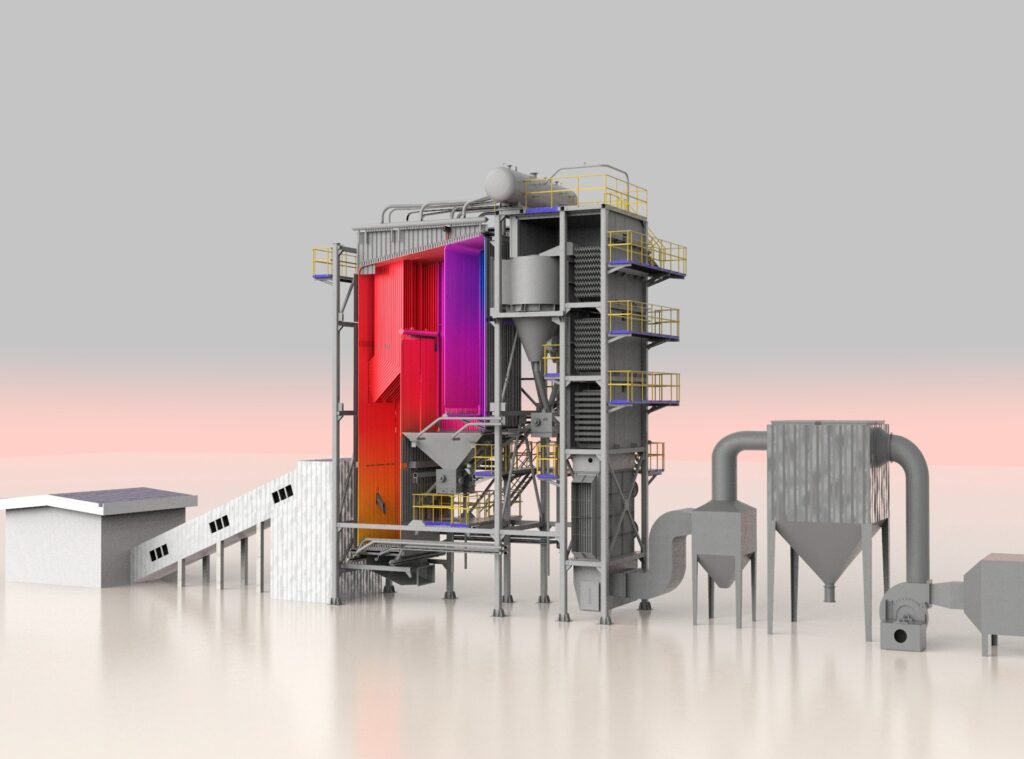As the world shifts towards sustainable energy solutions, biomass power plants have emerged as a crucial technology in reducing carbon emissions and promoting energy security. Unlike conventional fossil fuel power plants, biomass power plants use organic materials such as agricultural residues, wood chips, and energy crops to generate electricity. This not only reduces dependence on non-renewable resources but also supports local economies by utilizing waste materials effectively. Moreover, biomass energy contributes to circular economy principles by turning waste into energy and reducing landfill use.
The Role of Biomass Power Plant Manufacturers
Biomass power plant manufacturers play a pivotal role in advancing renewable energy technologies. Leading manufacturers focus on designing high-efficiency boilers, turbines, and emission control systems to ensure optimal energy conversion and minimal environmental impact. Many manufacturers are now integrating advanced gasification and pyrolysis technologies to improve fuel flexibility and plant efficiency. By investing in research and development, these manufacturers are able to produce solutions tailored to the unique needs of different regions, taking into account available feedstock, climate conditions, and energy demand.
Biomass Power Plant for Sale: Opportunities for Investors
With the growing demand for clean energy, there is an increasing market for biomass power plants for sale. Investors can acquire ready-to-operate facilities or turnkey projects that include everything from fuel preparation to electricity generation. Purchasing a biomass power plant offers multiple advantages, including stable returns, government incentives, and the ability to contribute to sustainable energy goals. Many manufacturers provide comprehensive support, including installation, commissioning, and ongoing maintenance services, ensuring long-term operational efficiency. In addition, the rising interest in small- and medium-scale plants allows rural communities and private enterprises to participate in energy generation, creating new income streams.

Successful EPC Biomass Boiler Island Projects
Engineering, Procurement, and Construction (EPC) biomass boiler island projects have set new benchmarks in the renewable energy sector. These projects integrate boilers, turbines, fuel handling systems, emission controls, and advanced automation into a seamless operation, maximizing efficiency and minimizing downtime. Successful EPC projects demonstrate that biomass energy can be scaled effectively to meet industrial and municipal energy needs. Notable examples include large-scale projects in Europe and Asia that have achieved high operational efficiency while maintaining environmental compliance. Some modern projects even combine biomass with solar PV or battery storage to provide hybrid solutions that increase grid stability.
Environmental and Economic Benefits
Biomass power plants offer significant environmental and economic benefits. By using locally sourced biomass feedstock, they reduce greenhouse gas emissions, minimize waste, and provide a sustainable alternative to coal and natural gas. Economically, biomass projects create jobs in feedstock collection, plant operation, and maintenance. Furthermore, the decentralized nature of biomass plants allows rural communities to benefit directly from energy production, improving energy access and local economic development. Advanced monitoring systems also allow operators to optimize fuel usage and reduce emissions, contributing to a greener energy system.
Policy and Market Trends
Government policies play a crucial role in the growth of biomass power. Subsidies, renewable energy certificates, and carbon credits incentivize investment in biomass technologies. Market trends indicate an increasing interest in modular and smaller-scale plants, which can be deployed quickly and serve local energy needs. International collaboration on biomass projects is also increasing, promoting knowledge sharing, standardization, and efficiency improvements.
Future Trends in Biomass Energy
The future of biomass power plants is promising, driven by technological innovation and government support for renewable energy. Advanced boiler designs, integrated automation systems, and improved feedstock logistics are enhancing plant efficiency. Moreover, hybrid systems combining biomass with solar or wind energy are gaining attention, offering flexible and resilient power solutions. Digitalization and predictive maintenance will further reduce downtime and operational costs. As countries strive to achieve net-zero carbon emissions, biomass power plants are expected to play a critical role in a diversified energy portfolio.
Conclusion
Biomass power plants are no longer just an alternative energy source; they are shaping the future of renewable energy globally. With the support of innovative biomass power plant manufacturers, accessible biomass power plants for sale, and the proven success of EPC biomass boiler island projects, this technology is set to expand rapidly. By combining environmental sustainability with economic growth, biomass energy represents a practical, scalable, and future-ready solution for the global energy transition.

 Instant
Quote
Instant
Quote Email
Us
Email
Us